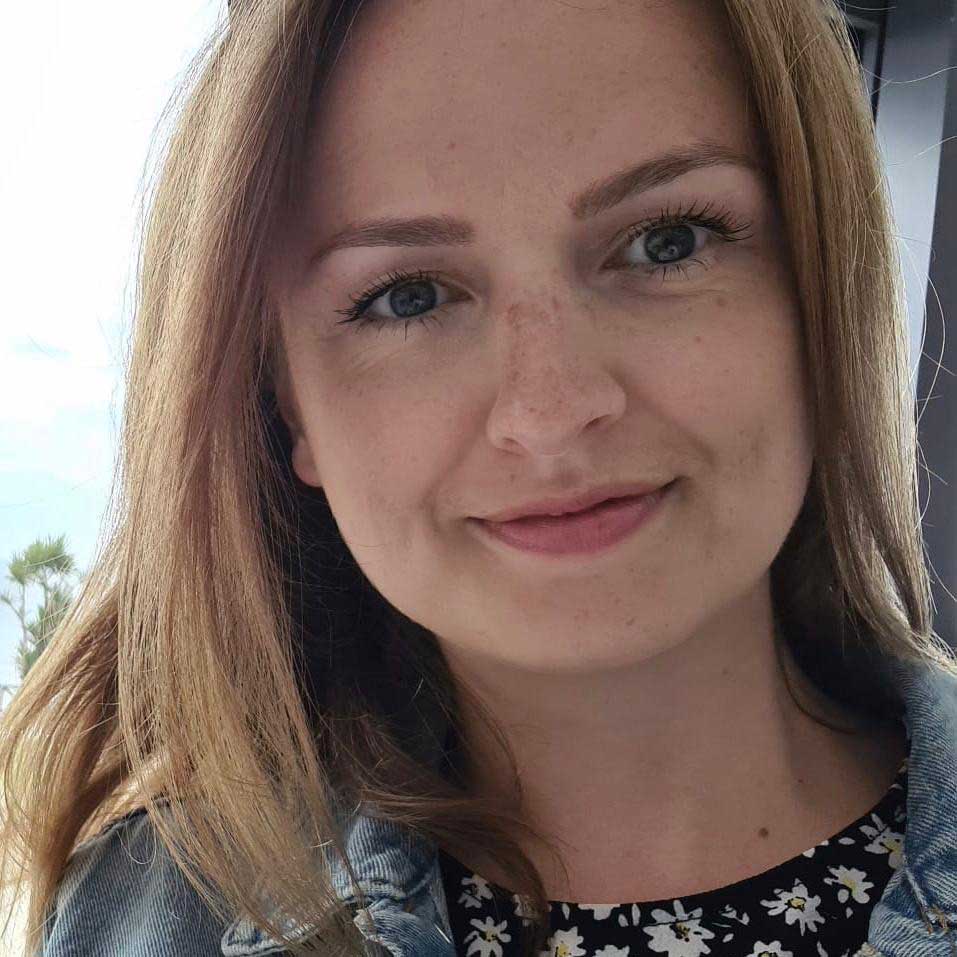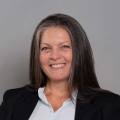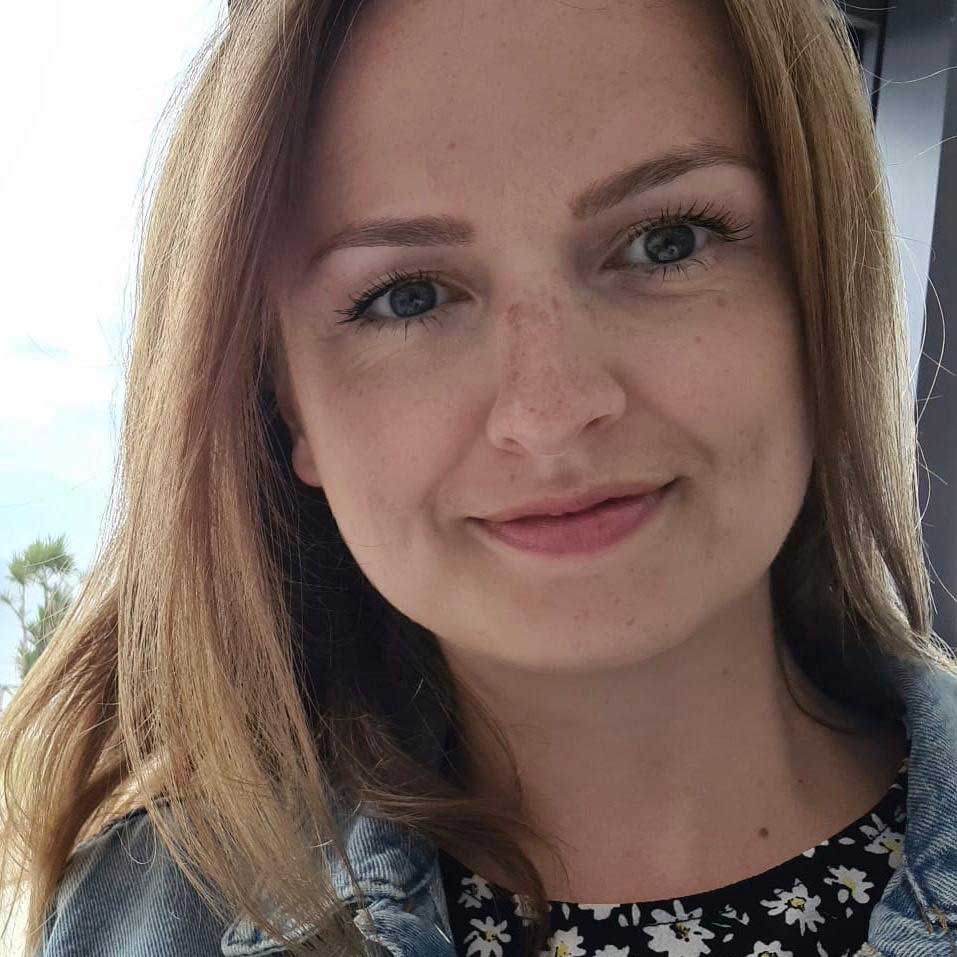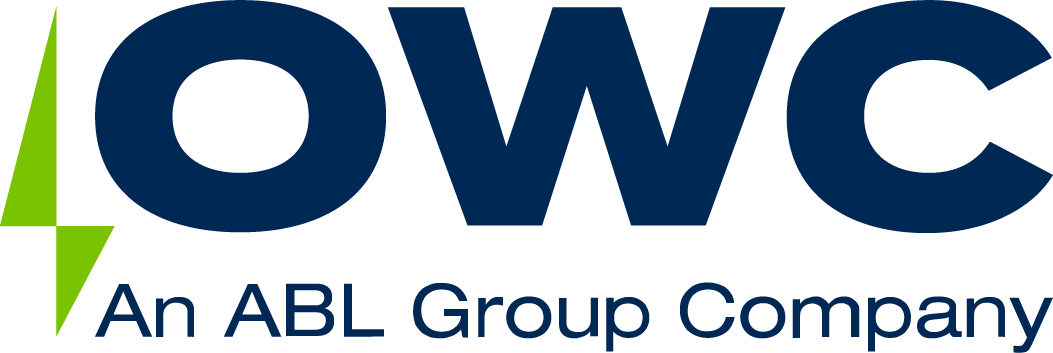International Day of Women and Girls in Science

We share the UN’s belief that science and gender equality are essential in achieving international sustainability goals, and today we are celebrating women and girls in science who are leading in innovation. Joining us are two of our very own women scientists, Marine Biologist Adrienne Fink from our Boston office and Geoscientist Amy Dowdeswell, based in London, looking back on what inspired them to pursue a career in science and offering advice for the younger generations.
What area of science do you specialise in, and what made you go into it?

Amy: I initially studied Geological Sciences at University as I have always been in awe of the natural processes that have gone before us and the time periods over which they’d occurred and wanted to learn more about them. Following on from my undergraduate degree, I moved to London and studied for my MSc in Petroleum Geology. After this, I joined an IOC as a Petroleum Geoscientist and gained an insight into the energy industry and the role it plays within geo-politics.

Adrienne: I have a Bachelor of Science in Biology with a Minor in Chemistry. I had no idea what I wanted to focus my studies on while in high school. All I knew is that I had an affinity for nature and an intense curiosity about natural systems and how they work – but I didn’t really know what I could do with that career-wise. It was a long-time family friend who inspired me to explore Biology and Ecology as a career choice. They were working on their PhD and doing work for non-profit organizations (NGOs) in South America. It was very interesting work, going to remote places like the Amazon, and working with local tribes and communities to assess the health and quality of local ecological systems to understand and measure the impacts relative to their uses. He was also focused on the planning and management aspects –understanding how sustainable development could positively impact these systems. For me, it was fascinating, and no one I was acquainted with at the time was doing anything even remotely similar. At that age, many influences and experiences come from family – and most of mine were either teachers or running businesses. It was by chance that I was exposed to this idea of managing natural systems and planning use – I think it speaks to the importance of exposing kids in the middle and high school years to a wide variety of career choices otherwise unaccessible to them.
What for you, is the most exciting aspect of a career in applied science?

I was always drawn to the idea of how understanding and managing our natural world could improve the quality of life for people. This is one of the reasons why, when it became an option to really focus my career path towards renewable energies, it was a no-brainer. Now that there is a deep and broad understanding that we can, and must, make changes in our energy systems to reduce GHG on a global scale, I really feel that it’s important to take a critical look at the potential environmental impacts these large infrastructure projects might have, and most importantly, identify ways that we can reduce any potential impacts as we make the switch to renewables. I once worked on a U.S subsea infrastructure project that allowed scientists to perform long-term and real-time experiments and collect critical oceanography data. I was reminded by the jurisdictional agency lead that ‘Impacts are impacts”, and so regardless of the overall positive aspects of any project, there will always be impacts to the environment – it’s important to acknowledge that and continually improve efforts to reduce them either through planning, process, or technology improvements. There is so much work happening in the offshore wind industry now around this.

The opportunity to continually learn and to see the processes I’ve studied. I enjoy the fact that there will always be something new to learn, the offshore wind industry is rapidly evolving, we all need to keep up with technological advancements to effectively do our jobs. I also relish the challenge of supporting the energy transition and am inspired to know I am making a positive difference to the way we live.
What advice do you have for girls and young women today considering a future in science?

I have been in the position where I’m the only female in the assessment centre or meeting room but hold you own, and don’t doubt your ability or why you’re there. Don’t give up, continue to work hard and do something you’re passionate about. A career in science is rewarding in so many ways.

For me, the most important part of working in the sciences is having a strong curiosity about how things work, and a willingness to explore all options and opportunities available to you. I wasn’t sure that I was completely cut out for the rigours of a science degree and the career that followed, but early hands-on experiences really negated those doubts. I tried a variety of different focuses by taking hands-on field courses and lab clinics in the areas of ecology and evolutionary biology, marine biology, molecular biology and genetics, plant sciences, and became a NAUI science diver and lived aboard a small research vessel for a summer collecting reef and fish data. All of this helped me to have a broad understanding that has suited me well in my career.
Science is central to the success of today’s energy transition journey… what would you like to see take place to accelerate the fight for climate change?

Ultimately, although many of us are pushing every day to make sure we are doing what we can, the next generation will be left to deal with whatever state the world is in when we leave it to them. I think younger people today already have a strong understanding of what it’s going to take to stop the advancement of climate change, both personally on an individual level and at the community and global level. This is a great start, and this understanding will go a long way in making sure things will continue to change in the right direction (and probably in ways I can’t even imagine sitting here right now!). We need to see governments globally put this at the forefront of urgent actions. We have to unapologetically push for more ambitious green energy goals, incentivize GHG reductions, subsidize green energies and green supply chains (while at the same time cutting subsidies for fossil fuels), and invest in technology advancements toward this end.

People need to be informed from an early age of the climate crisis, a science education is critical to this. It ensures as individuals grow, they are informed and aware of their responsibilities and the impact their day-to-day activities have on the world around them. Whether that be eating meat, flying for a holiday or using energy-efficient appliances.
